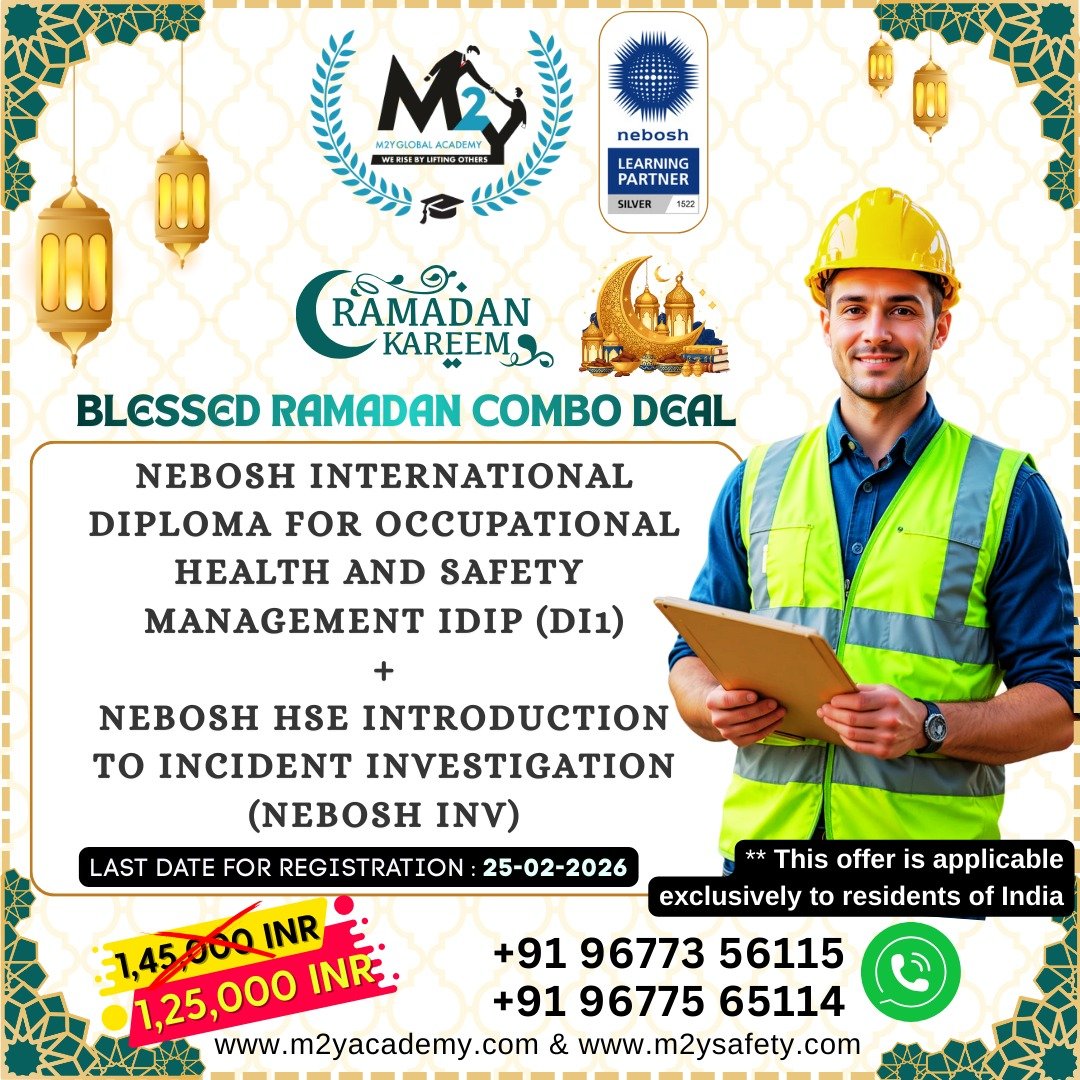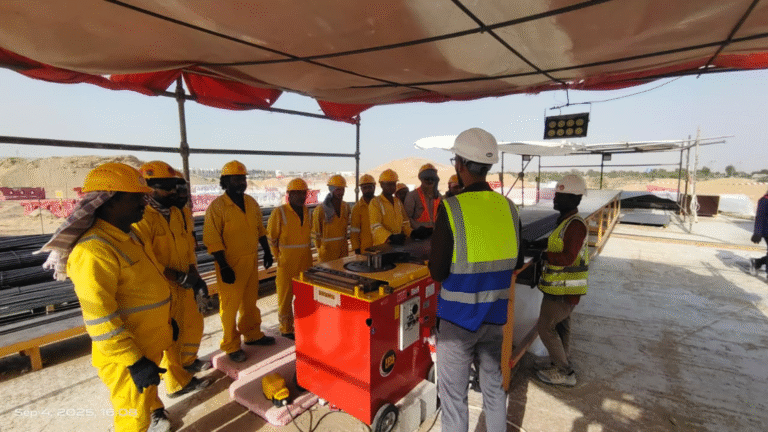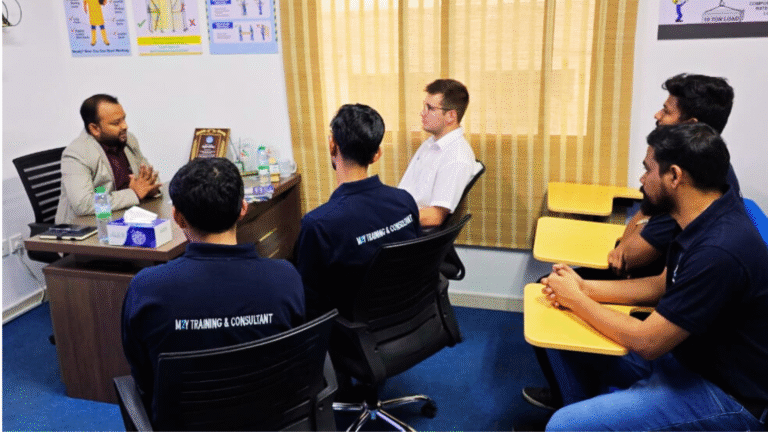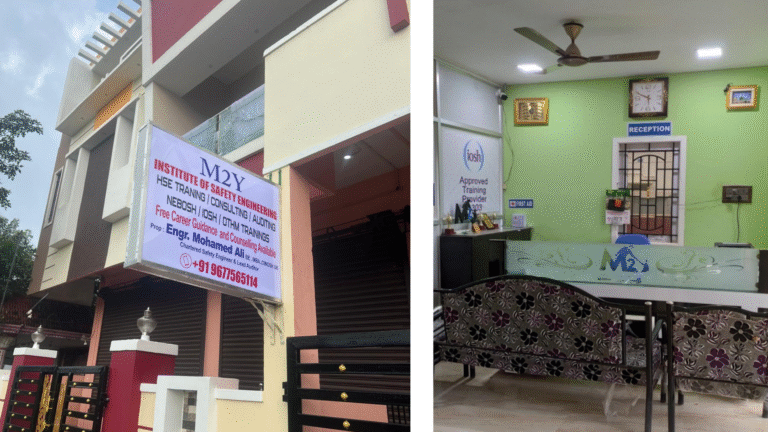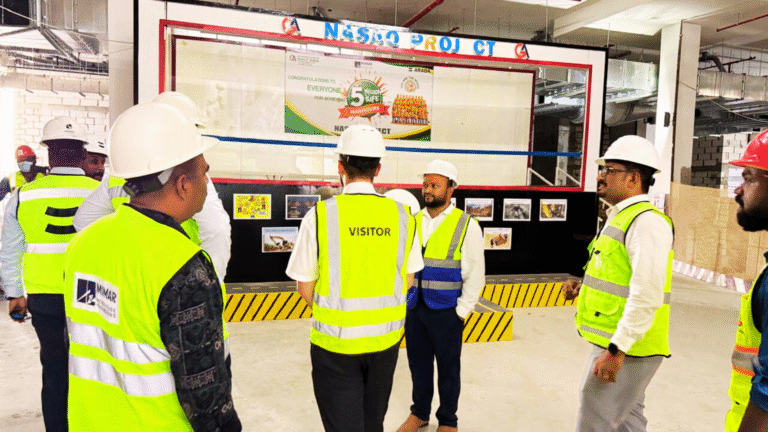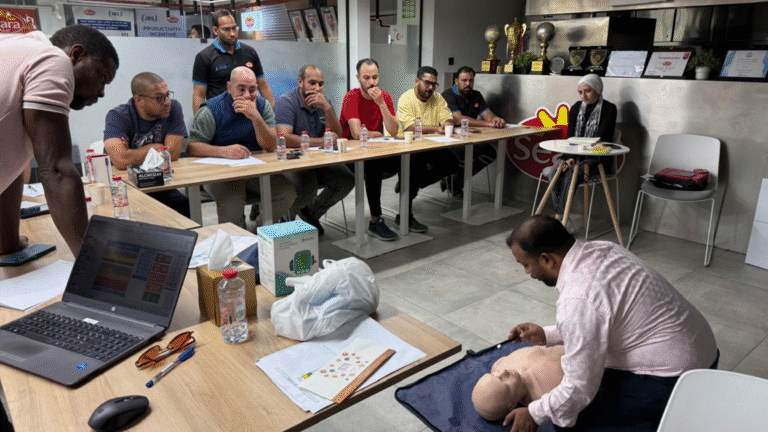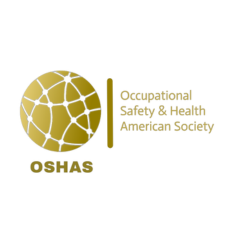Industrial Safety Course
✅ Introduction: Why Industrial Safety Training Truly Matters
In industries where heavy machinery, chemicals, and high-risk processes are part of everyday operations, safety isn’t just a protocol—it’s survival. If you’re a worker, manager, or employer in the manufacturing, oil and gas, construction, or chemical sectors, you’ve likely witnessed or heard of incidents that could have been avoided with the right training.
Choosing an Industrial Safety Course can be the difference between accident prevention and unplanned disasters. But with so many options available, how do you pick the right one? This article will walk you through everything you need to know—from course content and real-world applications to certifications and career scope.

What Is an Industrial Safety Course?
An Industrial Safety Course is a structured training program designed to equip individuals with the knowledge and practical skills needed to identify, evaluate, and control hazards in industrial environments. The curriculum typically covers:
Occupational health and safety principles
Fire safety and emergency preparedness
Electrical and mechanical safety
Hazard identification (HAZID) and risk assessment (HIRA)
Personal protective equipment (PPE) usage
Regulatory compliance (e.g., OSHA, ISO, Factories Act)
🛠 Real-Life Example:
In 2022, a manufacturing plant in Gujarat avoided a major fire outbreak because a recently trained safety officer identified a flammable chemical storage issue during a routine inspection. That’s the power of proper safety education in action.
🎓 Who Should Enroll in an Industrial Safety Course?
Whether you’re just entering the workforce or managing high-risk operations, industrial safety education offers tangible benefits. This course is ideal for:
Freshers looking for job-oriented diploma courses
Supervisors and managers in industrial operations
Engineers working in chemical, mechanical, or electrical fields
Safety officers seeking formal qualifications
HR and compliance teams responsible for regulatory training
👉 If you’re searching for industrial safety courses after 12th, this is one of the best options that guarantees job relevance.
Course Levels and Types
Industrial safety training is offered in various formats to suit different career stages:
1. Diploma in Industrial Safety
Duration: 6–12 months
Ideal for: Freshers or working professionals
Recognized by: Govt. of India or international accreditation bodies
2. Post Graduate Diploma in Industrial Safety (PGDIS)
Duration: 1 year
Eligibility: Graduation in science or engineering
Career paths: HSE Engineer, Safety Officer, Risk Manager
3. Certification Programs
Short-term online or offline training
Focused on specific topics like Fire Safety, HAZOP, or PPE
Why M2Y Global Academy for Industrial Safety?
At M2Y Global Academy, our Industrial Safety Course goes beyond textbook theory. You’ll get:
Live online classes and recorded materials
Trainer support from NEBOSH-qualified tutors
Government-approved certifications
Job placement guidance in India and the GCC
Real-time case studies and scenario-based learning
Career Scope After Industrial Safety Course
The demand for safety professionals is on the rise across industries:
| Job Role | Average Salary (INR/Year) |
|---|---|
| Safety Officer | ₹3,00,000 – ₹6,00,000 |
| HSE Engineer | ₹5,00,000 – ₹8,00,000 |
| Safety Manager | ₹8,00,000 – ₹15,00,000 |
| Fire & Safety Officer | ₹3,50,000 – ₹7,00,000 |
Top recruiters include:
L&T
Reliance Industries
Adani Group
Petrofac
Government of India – Department of Safety
Related Certifications That Boost Your Profile
If you’re considering further enhancement, you can also pursue:
NEBOSH IGC – Globally recognized
IOSH Managing Safely – UK-based foundational course
OSHA 30 Hours – Ideal for construction and general industry
ISO 45001 Lead Auditor – For system audits and consulting roles
External Trusted Resources
✅ FAQs – Industrial Safety Course
An Industrial Safety Course teaches essential principles of workplace safety, hazard control, fire prevention, risk assessment, and accident investigation in industrial environments.
This course is ideal for safety officers, factory supervisors, engineers, HSE professionals, and anyone working in manufacturing, construction, or industrial sectors.
The course typically covers occupational safety laws, personal protective equipment (PPE), emergency planning, industrial hazards, fire and electrical safety, and risk management.
Graduates can work as Safety Officers, HSE Engineers, Risk Assessors, and Safety Inspectors in factories, oil and gas, construction, and power plants.
Final Thoughts: Safety is a Skill—Not Just a Rule
An Industrial Safety Course doesn’t just check a compliance box—it empowers you with the ability to protect lives, preserve property, and contribute to a culture of proactive safety. Whether you’re a student looking for career options after 12th or a working professional aiming for a promotion, this course offers lasting value.
💡 Next Steps:
📞 Contact M2Y Global Academy for free counseling
💻 Join a demo class and explore course materials
🎯 Enroll and begin your safety career today!






